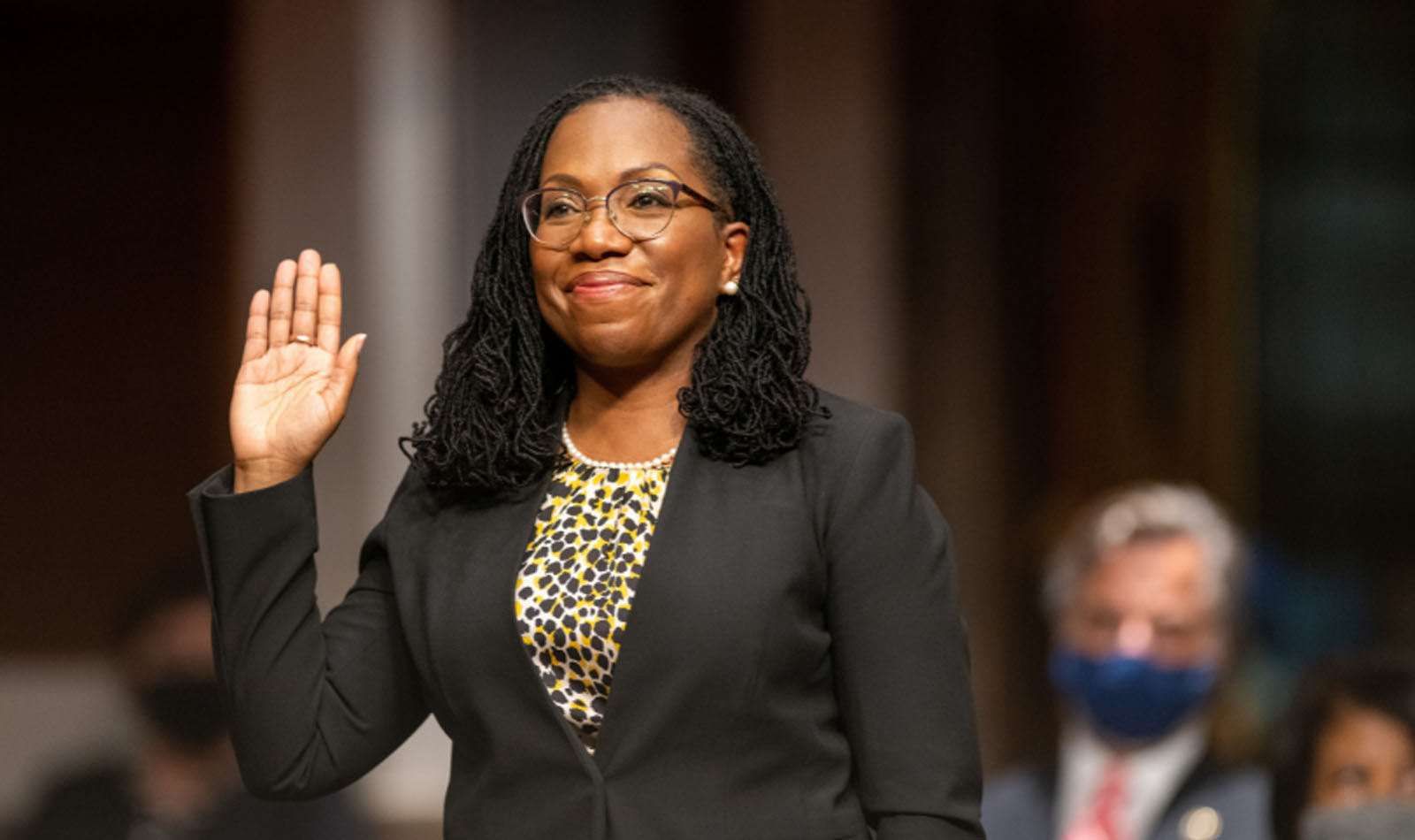Tell Elon Musk, the Hell with It
June 14, 2022
I thought I’d wait until you’ve forgotten Ilya Shapiro for the second time. We last contemplated his plight back in mid-February, when he was only a couple of weeks into his suspension from a job he was just about to start at the Law Center of Georgetown University in Washington, DC. Shapiro’s desert wandering lasted about 120 days, much longer than seems necessary to get to the bottom of the story. Finally, on June 2, the suspension was lifted; he was now at Georgetown. For one day (not counting the weekend). Then he quit.
Let’s back up.
For the last few years, Shapiro had been vice president of the libertarian Cato Institute in Washington and director of its Robert A. Levy Center for Constitutional Studies. He was due to become the executive director of Georgetown’s Center for the Constitution on February 1. Five days earlier, reacting to President Biden’s announcement that he would seek to appoint a black woman to the Supreme Court seat being vacated by Justice Stephen G. Breyer at the end of the Court’s current term, Shapiro, the author of a 2020 book on the history and politics of Supreme Court nominations, tweeted that the best pick would be the incumbent chief judge of the U.S. Court of Appeals for the DC Circuit, Sri Srinivasan. But because of the president’s pledge, Shapiro went on to say, we would get a “lesser black woman.” Stunned by what even Shapiro conceded was an “inartful” expression (he quickly deleted the tweet and made the usual apologies), Georgetown, on January 31, held up his appointment and put him on “administrative leave.” The Law Center needed the time, said Dean William M. Treanor, to investigate whether Shapiro’s tweets violated the university’s policies on professional conduct and anti-discrimination.
Four months later, on June 2, Georgetown announced Shapiro had been cleared (nearly two months after the Senate confirmed Judge Ketanji Brown Jackson’s appointment to the Supreme Court) . The reason: He had not been “properly subject to discipline” because he hadn’t actually started his job when the flap began. Shapiro tweeted he was “gratified” to be able to take up his duties and said he’d begin work the next day, a Friday (that tweet, too, has since been deleted). On Monday, four days later, he resigned, announcing his resignation to the world in a commentary published in the Wall Street Journal.
The off-again, on-again, off-again saga caught everyone’s attention; it had become big news. The next day, still more news: Shapiro had joined the Manhattan Institute, another conservative think tank, as senior fellow and director of constitutional studies. It seems clear that he didn’t just find a job overnight. He’d been looking, fielding calls and offers during his “four-month hiatus,” he said, fearing the worst.
Why, then, when Shapiro finally found himself in the job, did he quit, and why so precipitately? Because, he said, it became plain some hours after learning he had been cleared to join the Georgetown staff that he would be riding for a fall. The Law Center’s investigative report suggested to him that remaining at Georgetown “was untenable.” Instead, he was being “set up for discipline the next time I transgress progressive orthodoxy.”
I think there was more (or less) to it , though perhaps not much more (or less). Despite his bitter tone, and the frenzy of many conservative news outlets, aghast at the “woke mob” and “wokeness run amok,” the Manhattan Institute in a June 7 press release said this:
Shapiro recently joined the ranks of scholars leaving academic institutions where free speech is increasingly under attack. . . Shapiro was most recently executive director of Georgetown Law’s Center for the Constitution, the details of which have been chronicled elsewhere.
If it seems remarkable that either Shapiro or the Manhattan Institute would lay claim to his having been executive director at Georgetown on the basis of a one-day stint (not counting the weekend), especially given the obvious anger that infused his (and others’) feelings about the imbroglio, the statement suggests the high value that continues to be placed, even by detractors, on holding appointment at an academic institution (though it’s worth remembering that Shapiro was not being hired into a professorial role).
Is there a moral to this tale? Perhaps not, though both Shapiro and Georgetown think the incident speaks volumes. In Shapiro’s book, it’s a clear window into academic intolerance and Orwellianism, “where in the name of diversity, equity and inclusion, bureaucrats enforce an orthodoxy that stifles intellectual diversity.” For its part, Georgetown claimed fidelity to “speech and expression,” while “work[ing] to promote civil and respectful discourse.” In other words, Georgetown wasn’t calling out his intellectual leanings; it was deploring his emotional resonance.
I think the lesson is something else again. Matters of this sort have become so fraught that no one appears willing to talk about what really happened. I know nothing special about what went on behind the scenes, but I can spot bungled explanations—from both of them.
Georgetown’s surface claim is full of obvious holes. If the reason for “clearing” or “excusing” Shapiro for his verbal peccadillo is that he wasn’t yet an employee, well, the Dean, the HR department, university counsel, and everyone else obviously knew Shapiro’s status when he was suspended before his start date. No extra credit for that answer. What could possibly take four months to investigate? Is Georgetown’s employee conduct policy so impenetrable that even its administrators could not tell that it doesn’t reach to pre-employment conduct? On the other hand, why does it need to? Surely if you discover a prospective employee had committed a major indiscretion in his previous job, you can rescind your job offer. But coming up with an excuse for ignoring the malefaction without admitting that’s what you’re doing—that could take some time, and that, presumably, was Georgetown’s agony: how do you overlook what was, in the scheme of things, a blunder, the visible signs of which have already been erased and apologized for, without acknowledging to angry constituencies that that’s what you’re doing? Georgetown’s answer was, well, “inartful.”
And then there’s Shapiro’s claim, equally vacuous, it seems to me. Put upon by a howling leftist mob, persecuted by an orthodoxy that exposes the falsity of Georgetown’s avowal to seek the truth? But he wasn’t taken to task for preferring Judge Srinivasan to a particular other candidate. He was upbraided because he was plausibly understood to have demeaned an entire class of people on a campus lately concerned about just such voiced beliefs. Shapiro was not being hired as a professor for whom academic freedom in the classroom and in scholarly articles is the sine qua non. We’ll put off to another day the ultimate question about how to proceed if it turns out one of your professors states his bigotry as a truth in the classroom. The question in this case is whether the institution has a responsibility to insist on a level of decorum and civility on the part of one of its administrators.
Does anyone suppose that an employee should be impervious to discipline no matter what fool thing escapes his lips? There is at this very moment a strain of conservative orthodoxy that across the country is limiting by law what public school teachers can say in the classroom, not for reasons of civility, but for fear they they the politicians (and perhaps the students’ parents) won’t like what they hear of the teachers’ understanding of truth. It might have helped (me at least) believe his cause had Shapiro acknowledged that there is more than one strain of orthodoxy and that there is a difference between demands to be civil and to refrain from searching inquiry. You want sound judgment on the part of your administrators; on this occasion, Shapiro failed to exhibit it. How likely was it that he would continue to perform under par?
Yes, Georgetown padded its reaction, but Shapiro garbled his apology. He still doesn’t seem to understand the nature of his irresponsibility and its impact on his employer-to-be. You oughtn’t fire someone for stirring up a tempest in a teacup. By the same token, a miscreant oughtn’t dignify his mistake as essential to discovering mountains in a molehill.
When I was in school, a long time back, one of the few practical things we were taught was never to send a letter in irony or anger minutes after writing it. Put it in a desk drawer for a week (this was, you’ll realize, in the days before electricity). So Ilya, do yourself a favor: don’t tweet cute remarks late at night before going to bed. At the very least, sleep on it. Then read it again. Better yet, tell Elon Musk the hell with it.
Your email will not be posted on the site if you make a comment.


